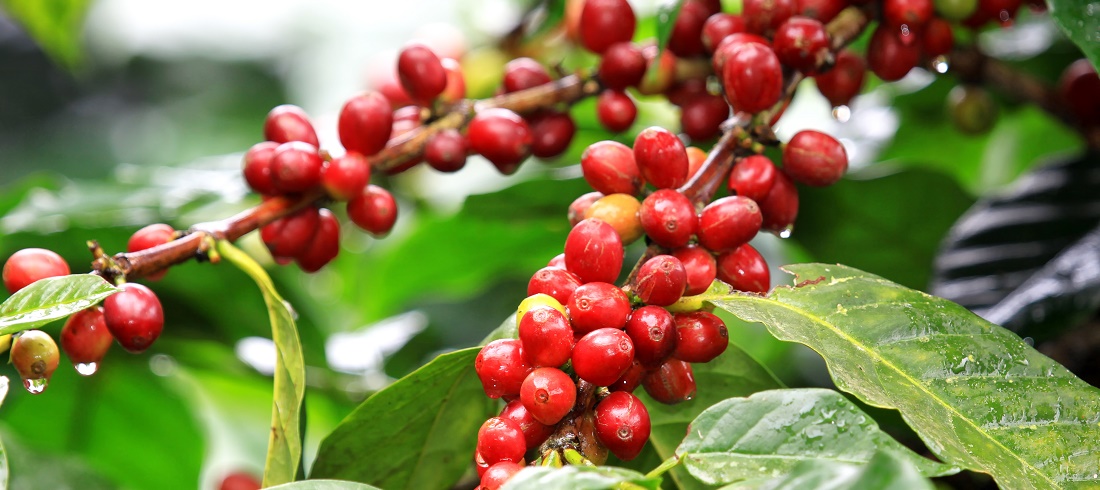
Bad weather opens up space for Brazilian conilon coffee in Asia
Apr, 04, 2024 Posted by Gabriel MalheirosWeek 202414
The lack of rain has directly affected robusta coffee crops in Vietnam and Indonesia, world-leading producers of the variety. As a result, Brazilian exports of conilon coffee to these two countries soared, taking prices up to a historical level this week. The 60-kilo bag reached an all-time high, priced at R$1,000 in the domestic market.
Like the robusta bean, Brazil’s conilon—both of which are varieties of the canephora species—is mostly used in blends of ground coffee and the production of soluble coffee. The drought reduced the Vietnamese and Indonesian harvesting. To be able to export, these two countries are shipping the available coffee beans and importing Brazilian beans to supply their domestic market.
This is not the first time Brazil exports conilon to Vietnam and Indonesia, but the current volume of shipments is virtually unprecedented. According to the Brazilian Coffee Exporters Council (Cecafé), in the first two months of 2024, Indonesia imported 36,700 bags of Brazilian conilon, 415% more than in the same period in 2023, when shipments totaled 7,100 bags. In the same time range, shipments to Vietnam soared 26%, to 17,600 bags.
The Espírito Santo state leads the production of conilon in Brazil. On Wednesday (3), the price of a 60-kilo bag of the variety rose 3.3% to close the day at R$1,024.70 in the state, according to the Center for Advanced Studies in Applied Economics (Cepea).
“The reasons for the rise of conilon prices remain the same: strong demand and limited supply. With Vietnam out of the market, Brazil is being sought out to supply buyers,” said Antônio Pancieri Neto, from Clonal Corretora de Café. He said some deals were closed for up to R$1,035 during the day.
In addition to the increased demand for Brazilian coffee in the international market, climate issues have also increased prices. The drought that hit Espírito Santo’s coffee plantations at the end of 2023 is expected to reduce production in the state, offering additional support to prices. Despite that, according to Mr. Pancieri Neto, conilon from the state is still competitive in the international market, as Vietnamese coffee currently sells for the equivalent of R$1,230 per bag.
The limited supply in the two main producing countries of the variety and logistical issues caused by Yemeni rebels’ attacks in the Red Sea, the bean’s route to Europe, have impacted prices in the international market. On the London exchange, a reference for robusta trade, contracts expiring in May, currently the most liquid ones, rose 3.79% on Wednesday (3), to close at $3,802 a tonne.
Recently, trade in London has influenced prices in New York, where arabica coffee is traded. Brazil is the largest global producer of arabica. In NY, May contracts closed the day up 2.96%, at $2.0360 per pound.
“According to market operators in Vietnam, the country’s producers are not managing to close any deals, despite record-high prices. That is a result of the low availability,” said Vicente Zotti, a partner at Pine Consultoria.
The new market dynamics, in which the two largest robusta producers have turned to Brazil and other countries to supply their coffee consumption, have entered the radar of relevant players in the global trade chain. Neumann Kaffee Gruppe, the world’s largest coffee trader, opened an import office in Indonesia early last month to meet the demand.
According to Mr. Zotti, climate issues are estimated to lead to a crop failure of up to 6 million bags in the two main robusta-producing countries. Throughout Southeast Asia, especially in Vietnam, the risk of prolonged drought in the coming weeks, when the coffee trees are expected to bloom, is of major concern. If the volume of rain falls below the historical average, the crop to be harvested in December “could take a serious blow,” he pointed out.
Issues in coffee supply in Southeast Asia come at a time of expanding consumption in the region, further increasing prices and emphasizing the need to boost imports. In Indonesia, for example, consumption has grown, on average, 4% per year over the last decade, according to the local exporters association. The pace of expansion is stronger than the increase in demand estimated by the International Coffee Organization (ICO) for this year. According to ICO, global consumption should grow 2.2% in 2024.
The scenario opens up new possibilities for Brazilian conilon. “In the coming years, Brazil could become the largest conilon producer in the world, surpassing Asian countries,” said Marcos Matos, president of Cecafé.
Source: Valor International; original text available here: https://valorinternational.globo.com/agribusiness/news/2024/04/04/bad-weather-opens-up-space-for-brazilian-conilon-coffee-in-asia.ghtml
-
Environment
Jul, 07, 2022
0
Maersk steps down from ICS board citing lobby group’s lack of green ambition
-
Steel and Aluminium
Nov, 03, 2021
0
US and EU move forward in pact to end Trump-era steel feud
-
Ports and Terminals
Sep, 16, 2024
0
“Super Terminais Launches Operation Itacoatiara to Ensure Cargo Transport Amid Severe Drought”
-
Ports and Terminals
Dec, 20, 2022
0
Itapoá breaks record for cross docking exports in 2022

